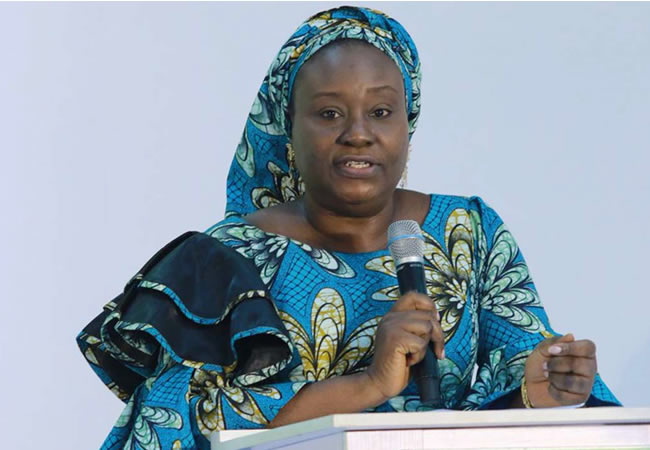MDAs salary harmonisation should be sincere, transparent
The federal government has initiated moves to harmonise the salaries of employees of its ministries, departments and agencies (MDAs) to check discrepancies in the pay structure. The move, which has been touted for long, will be completed by the end of the year, the Head of the Civil Service of the Federation and head of […]

The Head of the Civil Service of the Federation (HCSF), Dr. Folasade Yemi-Esan.
The federal government has initiated moves to harmonise the salaries of employees of its ministries, departments and agencies (MDAs) to check discrepancies in the pay structure. The move, which has been touted for long, will be completed by the end of the year, the Head of the Civil Service of the Federation and head of the Presidential Committee of Harmonisation, Dr Folasade Yemi-Esan, said last week during an interactive session on governance for public service leaders’ programme.
The harmonisation has become essential due to the huge discrepancies in the salary structure of the MDAs resulting in employees working for the same employer and on the same grade level being paid differently. The Minister of Finance, Zainab Ahmed, explained earlier in the year that, “There are some government agencies paying much higher than others for staff on the same grade level.”
“What government hopes to achieve is to redistribute wages equally across the board. Let us bring our salary structure within government agencies as close or as equitable and fair,” she said.
This is easier said than done. Attempt to harmonise the country’s salary structures predates Nigeria’s independence. Since the Hunt Commission, established for that purpose in 1934, there have been more than a dozen commissions. This present commission headed by Dr Yemi-Esan was preceded by the Ernest Shonekan-led one established by former President Olusegun Obasanjo in 2006. None of them succeeded in resolving this discrepancy satisfactorily.
However, Dr Yemi-Esan’s committee is determined to push through the harmonisation by the end of the year and has been working with the National Salaries, Incomes and Wages Commission (NSIWC) to this end.
The harmonisation has become essential as the discrepancies have resulted in bitterness, envy, insubordination, corruption, poor job satisfaction and ultimately poor performance in the civil service. All of this affects productivity in the country. And it is imperative that no worker is made to feel more important than the other. In any case, this sort of situation causes the populace to do everything within their power, including engaging in illegality to get jobs with the higher paying organisations. In the United Kingdom, for instance, the pay of civil servants is the responsibility of HM Treasury, which issues guidance on pay. Civil servants are paid similar amounts to those working in other areas of the public sector. At the end of March 2020, the median pay across the whole civil service was £28,180. For senior civil servants, it was £81,440, and for administrative officers, £20,500.
To that end, we welcome this plan by the government and hope that it yields the desired result. The objective of the harmonisation exercise is to redistribute wages across the board to bring the salary structure as close to equitable and fair as possible.
This will also be crucial to cutting government spending and reducing corruption among officers desperate to live up to the standards of their peers in higher-paying agencies.
But it must be noted that this harmonisation will not be an easy exercise. The disparity in the pay structure between employees in some agencies and core civil servants, as Dr Yemi-Esan acknowledged during an event, is so vast that the challenge is finding a middle ground. Those on too high a salary will have to be brought down to a reasonable level while those way below will have to be elevated to a reasonable level to be at par. This means that this challenge must be handled with all sensitivity, sincerity, fairness and equity to ensure the wellbeing of the MDAs, their working relations and the financial health of the economy of the country.
This committee must be resolute in seeing through this harmonisation to bring to a culmination a process that has dragged on for almost 90 years. It should come up with a policy that stipulates that every government worker performing the same role should earn the same pay. That will guide government in this enterprise.
It must be noted that if handled carefully, the new harmonised salary structure will attract talented Nigerians to the public service to contribute their quota to the growth and development of the country. The importance of this cannot be overemphasised as the civil service is one of the most essential organs of governance in the country.
We, therefore, urge the Yemi-Esan-led committee to carry out this task with sincere diligence, utmost fairness, equity, transparency and a sense of purpose and patriotism to guarantee the smooth running of the civil service and the high morale of the people who have dedicated their working life to serving the country. All employees of government must be seen to be treated fairly if not equally.
